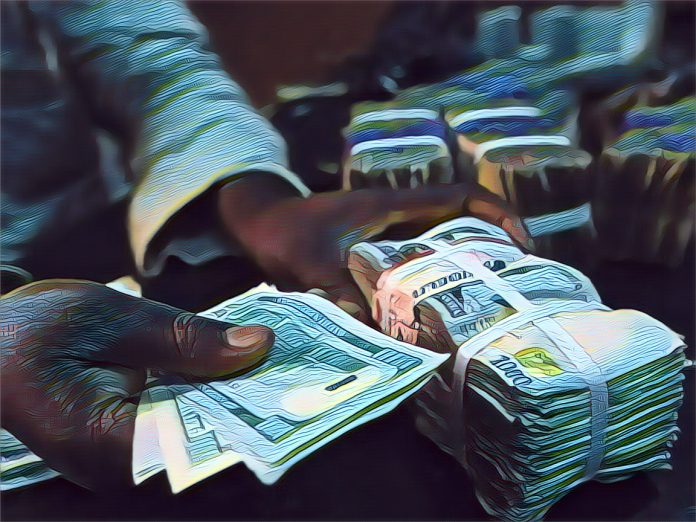Nigeria’s currency, the naira, has hit a new low against the US dollar in the parallel market, where most Nigerians buy and sell foreign currency. The naira-dollar exchange rate reached N1220/$ on Friday, according to local media reports, a 20% depreciation since the start of the year.
The parallel market, also known as the black market, is where individuals and businesses source foreign exchange when they cannot access the official market, which is tightly controlled by the Central Bank of Nigeria (CBN). The CBN sells dollars at a fixed rate of N379/$ to banks and authorized dealers, who then sell to customers at a margin.
However, the CBN has been struggling to meet the demand for dollars in the official market, due to low oil prices, Nigeria’s main source of foreign exchange, and the impact of the coronavirus pandemic on the economy. The CBN has also imposed several restrictions on the types of transactions that can access the official market, such as imports of certain goods and services, remittances, and travel allowances.
This has created a huge gap between the official and the parallel market rates, which some analysts say is unsustainable and harmful to the economy. David Adonri, a capital market analyst, told journalists that the government should organize a single market where all participants can trade at a market-determined rate.
“In a case of floatation, the market mechanism determines the price and in this case, the market will be subjected to demand and supply. That’s why we are saying it’s a misnomer to have a dichotomy where we have official and parallel market operating in silos. The responsibility of the government or the monetary authority that control the monetary policy should be to organize a single and perfect market wherein all economic element in the economy will be a participant,” Adonri said.
He added that the unification of the markets would reflect the true value of the naira and attract more foreign investors, who are wary of the multiple exchange rate regime. He also said that the government should address the supply side of the foreign exchange market, by boosting domestic production and exports, and reducing the demand for imports and consumption.
The naira’s depreciation has fueled inflation, which rose to 15.75% in December 2023, the highest in three years. It has also eroded the purchasing power of Nigerians, many of whom live on less than $2 a day. The naira’s weakness has also affected the country’s external reserves, which fell to $34.9 billion in January 2024, from $36.5 billion in December 2023.
The CBN has warned against speculation and illegal activities in the parallel market, saying that they undermine the naira and the economy.
However, some experts have urged the CBN to adopt a more flexible exchange rate policy, that would allow the naira to adjust to market realities and reduce the pressure on the reserves. They have also called for more transparency and accountability in the management of the foreign exchange market, to restore confidence and credibility.
Despite the challenges, some analysts are optimistic that the naira will recover in the near future, as the global economy recovers from the pandemic and oil prices rebound. They also hope that the government will implement structural reforms and diversify the economy, to reduce its dependence on oil and foreign exchange.
Source: Vanguard



